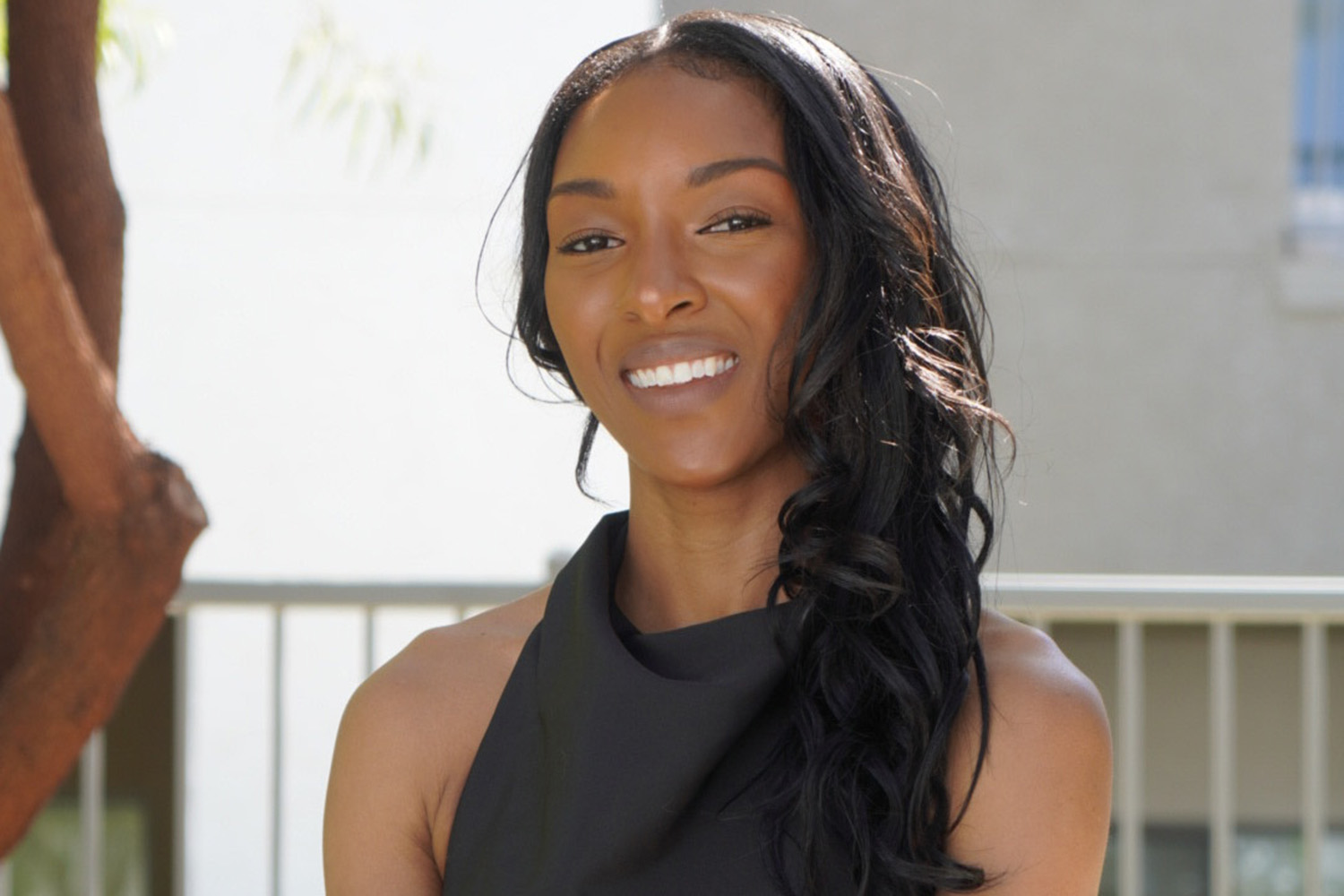05.09.2024
By uscbknpt
Onto the Next Chapter

Once a physical therapy assistant at a corrections facility, Morgan Boyd aims to use her new DPT degree to treat underserved communities.
BY YASMINE GRIMBLE MCG ’16
FOR MORGAN BOYD DPT ’24, the journey from her hometown of Chesapeake, Va., to USC is marked by diverse experiences.
A graduate of Norfolk State University, just 10 miles north of her hometown, the four-year scholarship recipient’s prowess on the softball field and dedication to her academic achievements were just the beginning.
After her undergraduate studies, Boyd worked as a physical therapy tech while she completed an accelerated physical therapy assistant degree from South University in 2016. With a new degree under her belt, she started looking for jobs to gain even more exposure to the profession and patient care.
“I wanted to do something that was going to be unique and interesting to me, but make a difference,” Boyd says.
Treating Inmates
When she stumbled on a role on the Internet within the Virginia Department of Corrections looking for a physical therapy assistant, she decided to double-click.
“I hadn’t seen any PT-related jobs like it before. I learned the role was a part of a new medical team providing services to inmates in correctional facilities without having to take them out. I was like, ‘Heck yeah, I’m going to do that!”
As Boyd’s excitement soared upon landing the position, her family’s response was tinged with apprehension and concern for her safety.
“They wanted me to look for another job, but I’m a risk-taker anyway, they know that,” Boyd says, with a laugh. “I wasn’t scared, other than the usual ‘first day on the job’ nerves.”
Her roles as a physical therapy assistant and later as a site supervisor within the Virginia Department of Corrections were just what she was looking for — unique and impactful. Working with male inmates across various security levels, Boyd encountered diverse cases, from orthopedic injuries to neurological conditions.
“I’d see inmates who tore their ACL working out or people getting total hip replacements, and then there were people who are aging and going to be in there for life,” Boyd recounts. “So I got to see a lot, but you had to handle it a little differently than you would in a traditional setting because things move slower in there.”
Boyd described the other challenges, like staffing and funding, she witnessed within the correctional system.
“I treated an inmate who had multiple sclerosis whose symptoms progressed very quickly,” Boyd recalls. “Due to his heat sensitivity and the older buildings having poor air conditioning, there was limited ability to get his area cool contributing further to the progression.”
Working in the prison system not only exposed her to unique challenges but also instilled in her a deep sense of empathy and a commitment to holistic patient care.
“While it’s true that some inmates are there for good reason, you still have to treat them with respect and professionalism,” Boyd says. “I learned the value of treating the whole person that’s in front of you without bias, allowing them to feel heard.”
Open Road Ahead
Transitioning from her role in the prison system to pursuing a DPT degree program at USC was a significant change that Boyd embraced with high regard.
“You hear about the USC Trojans everywhere, but for me, it was the reputation for groundbreaking research and the physical therapy education specifically that drew me in.”
Reflecting on her time at USC, Boyd credits faculty members Noriko Yamaguchi DPT ’08 and Didi Matthews ’99, DPT ’02 for their mentorship and challenging her to deepen her skillsets.
“As students, we were pushed to really hone in on the minor details so that it becomes second nature and we don’t become complacent when we step into the profession on our own.”
While Boyd’s future may not lead her back to the prison system immediately, she remains open to opportunities where she can make a meaningful impact.
“My next chapter will focus more on underserved communities outside the system, but I’m not against jumping back in if the right challenge comes along!”

